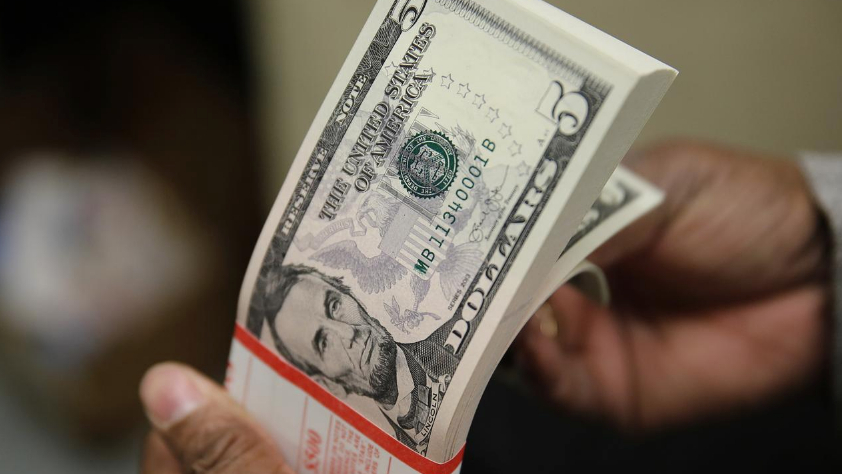
Economy
14:58, 01-May-2019
U.S. Fed holds policy meeting as officials debate on rate moves
CGTN

The U.S. Federal Reserve on Tuesday kicked off a two-day policy meeting as Fed officials debate whether to increase or cut interest rates amid strong economic growth and weak inflation.
The meeting came after the Department of Commerce reported last week that the U.S. economy expanded at an annual rate of 3.2 percent in the first quarter, mostly driven by strong exports and private inventory investment.
The better-than-expected growth in the first quarter has allayed worries of a sharp economic slowdown, giving some Fed officials reasons to believe that the central bank should stick to its rate-hiking plan.
But some economists pointed out that the headline growth number overstated the U.S. economy's underlying strength, as personal consumption and business investment was actually weak in the first quarter. Moreover, the persistent soft inflation opened the door for policymakers to consider a rate cut.
Excluding the volatile energy and food prices, the core personal consumption expenditures (PCE) price index, a preferred inflation gauge by the Fed, was up 1.3 percent in the first quarter, still below the central bank's target of 2 percent.
"If the Fed is serious about the inflation target, then the odds favor a rate cut over a rate hike," Tim Duy, a long-time Fed Watcher and professor at the University of Oregon, wrote in a blog post on Monday.
U.S. President Donald Trump has also repeatedly criticized the Fed's rate increases and urged the central bank to lower interest rates to boost the economy.
"Our Federal Reserve has incessantly lifted interest rates, even though inflation is very low, and instituted a very big dose of quantitative tightening," Trump tweeted on Tuesday.
"We have the potential to go up like a rocket if we did some lowering of rates, like one point, and some quantitative easing," he said.
But the Fed is unlikely to cut interest rates anytime soon, for fear that it looks like they're caving to political pressure, according to analysts.
"Fed officials would likely worry about the risks that a rate cut could appear political or unnerve markets, which might mistake a cut in response to low inflation for serious concern about the growth outlook," Goldman Sachs analysts led by chief U.S. economist Jan Hatzius said in a recent note.
As there's no recession on the horizon, the Fed's next rate move is more likely an increase rather than a decrease, they argued, adding the central bank will likely wait until the fourth quarter of 2020 to raise rates again.
"Greater political scrutiny of monetary policy decisions probably further reduces the odds of a rate hike in a presidential election year until after the elections are over," they wrote.
In March, the Fed left its benchmark federal funds rate unchanged in a range of 2.25 to 2.5 percent, while pledging to be patient with future rate hikes.
Source(s): Xinhua News Agency

SITEMAP
Copyright © 2018 CGTN. Beijing ICP prepared NO.16065310-3
Copyright © 2018 CGTN. Beijing ICP prepared NO.16065310-3